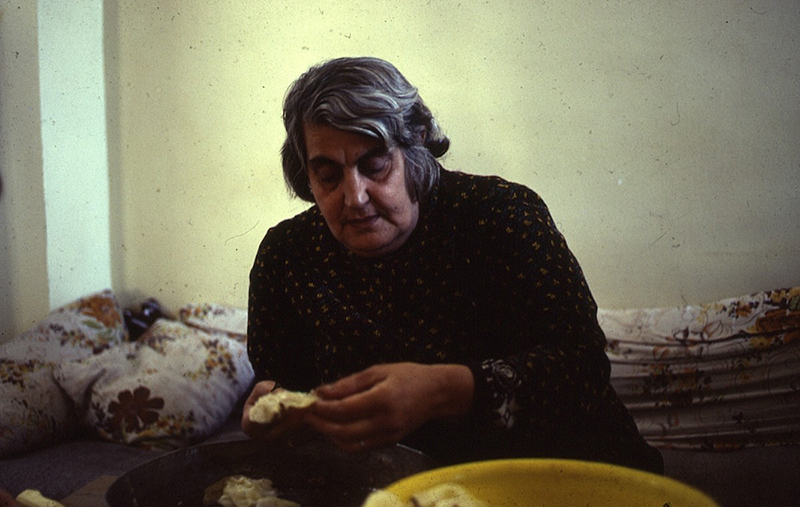Al Dhakira al Khasba (Fertile Memory)
Restored by CINEMATEK (DCP). Followed by a conversation with Michel Khleifi (in French). In collaboration with SCC.
Courtisane is een platform voor film en audiovisuele kunsten. In de vorm van een jaarlijks festival, filmvertoningen, gesprekken en publicaties onderzoeken we de relaties tussen beeld en wereld, esthetiek en politiek, experiment en engagement.
Courtisane is a platform for film and audiovisual arts. Through a yearly festival, film screenings, talks and publications, we research the relations between image and world, aesthetics and politics, experiment and engagement.
Restored by CINEMATEK (DCP). Followed by a conversation with Michel Khleifi (in French). In collaboration with SCC.

The first full-length film to be shot within the ‘Green Line’ of the occupied territories, the film blends both documentary and narrative elements in order to craft portraits of two very different women: Farah Hatoum, a 50-year-old widow living in the city of Nazareth, and Sahar Khalifeh, a divorcee living with her daughter in the Israeli-occupied West Bank.
“We can only reach the truth by denouncing the logic and the systems that transform us into potential tormentors and victims. That is how I decided to make a film for - and not about - the women of Palestine, and through them, a film for Palestine. In Fertile Memory, Palestine - its history, its reality, its future, and its contradictions - appear through the portraits of two women, who are almost marginal in the eyes of society, a widow and a working woman. They become the archetype of their people’s experiences. Here was how a subdued history oppresses half of its population. Fertile Memory was for me the vision of the present towards the past for a better future. I tried to push the real scenes from daily life towards fictionality, by exploring the women’s external and internal worlds. I had to suppress the boundaries between reality and fiction, document and narration. Is not Palestine the essence of the mythical country, in spite of its reality?” (Michel Khleifi)